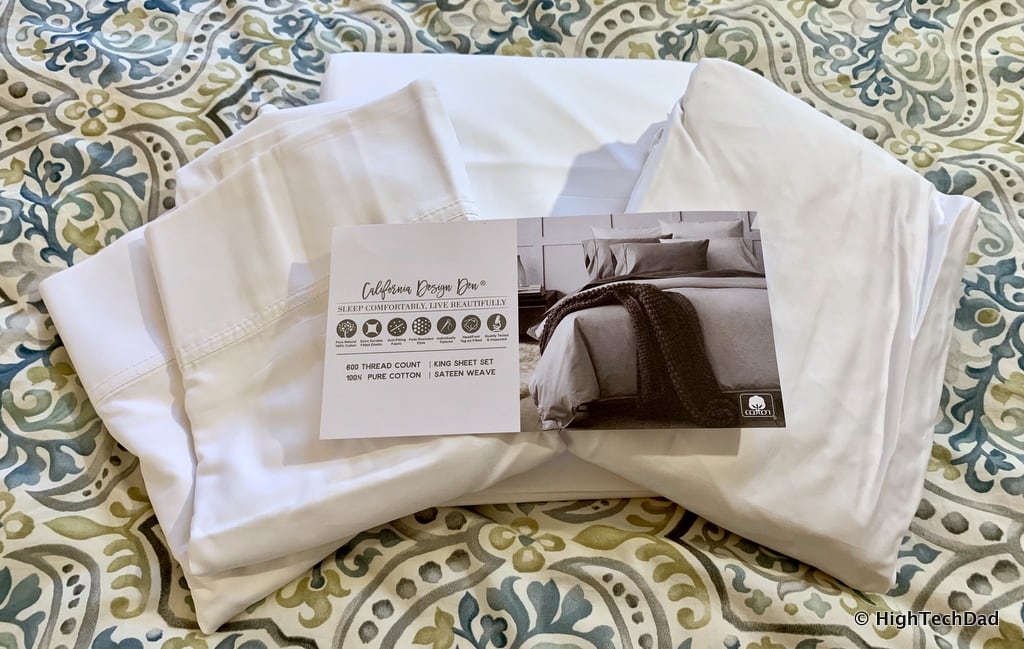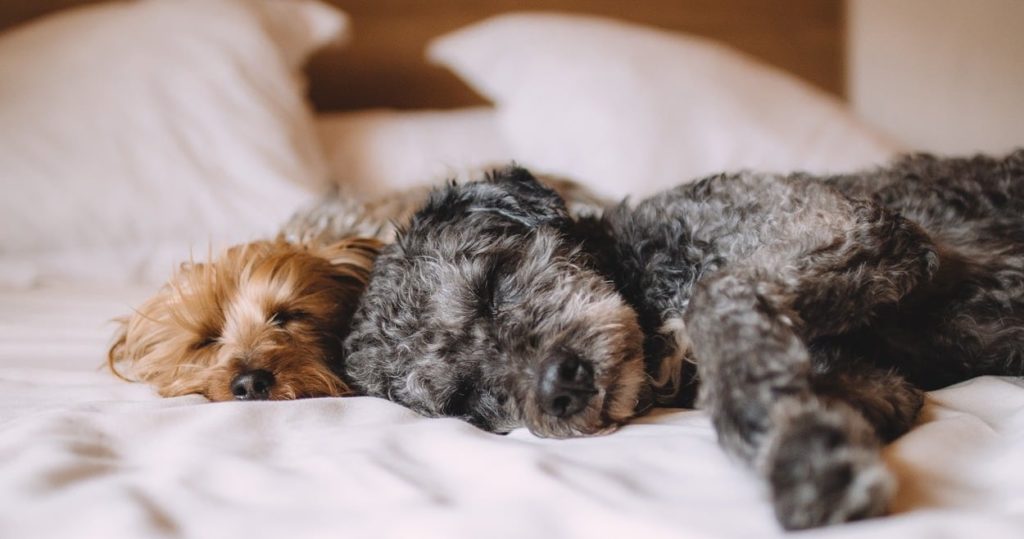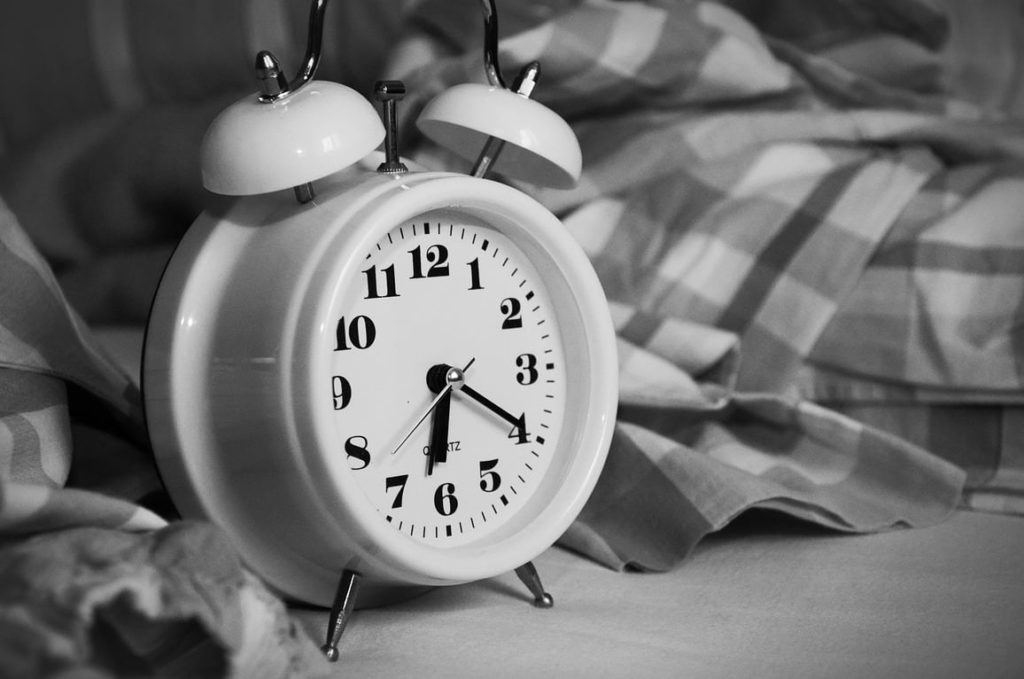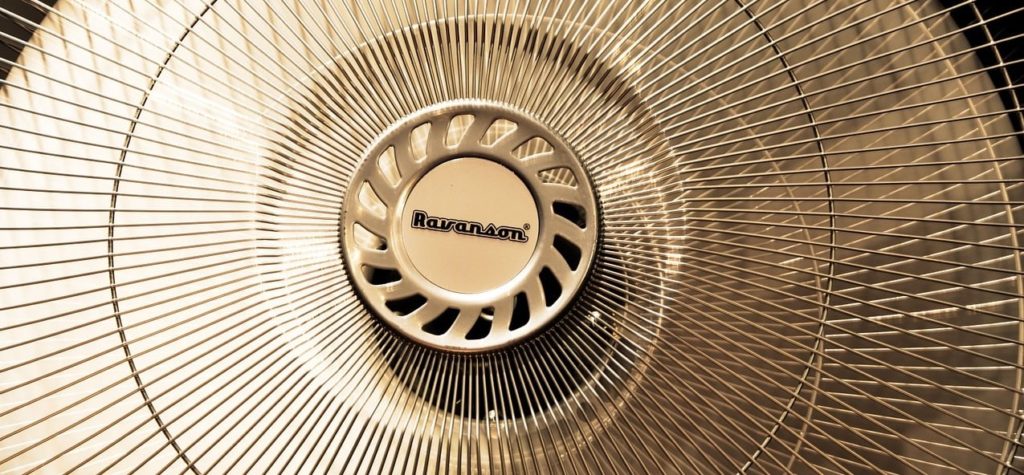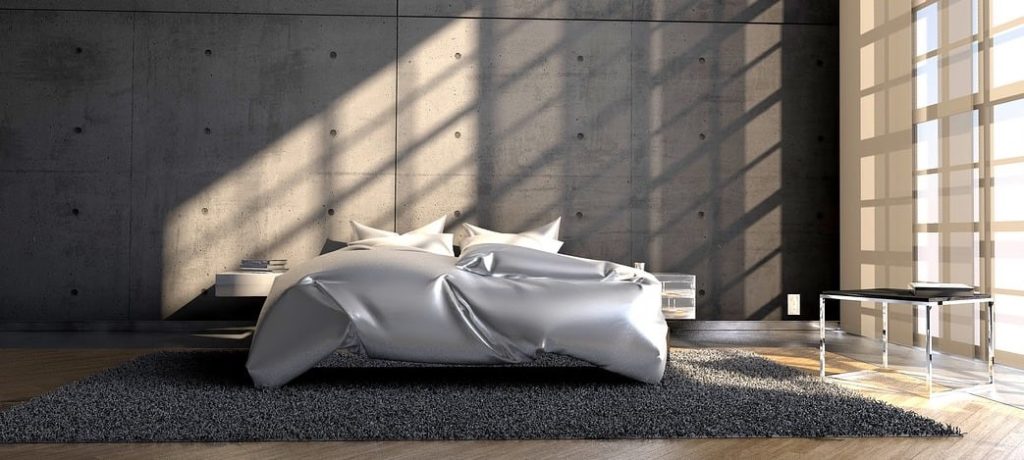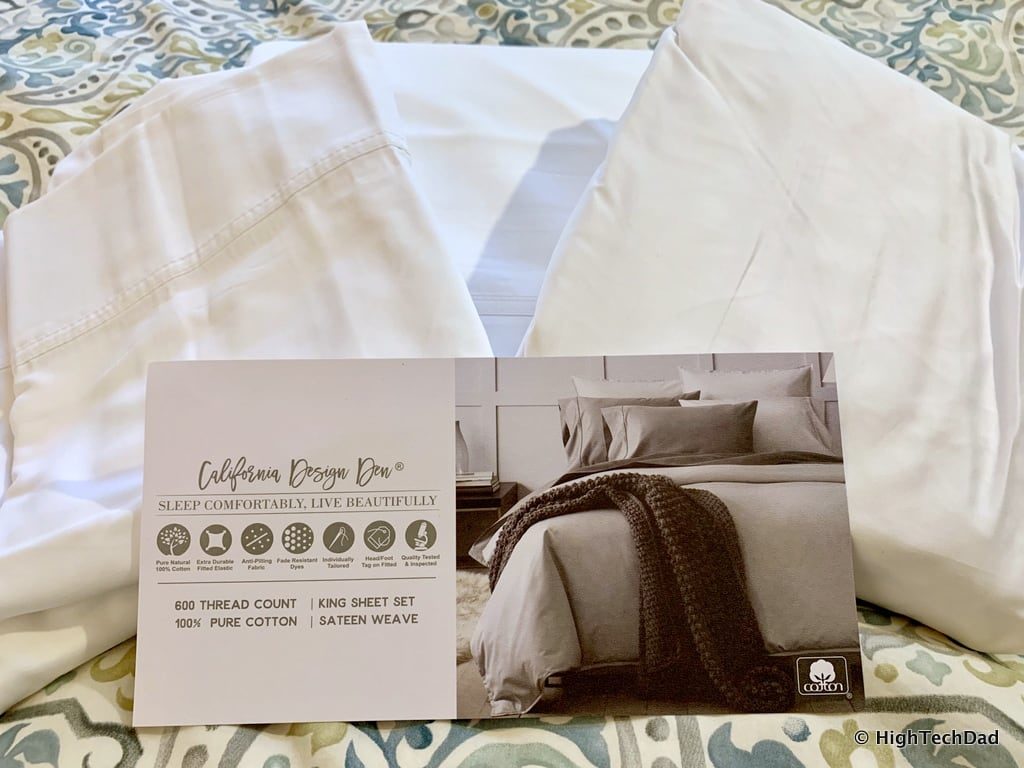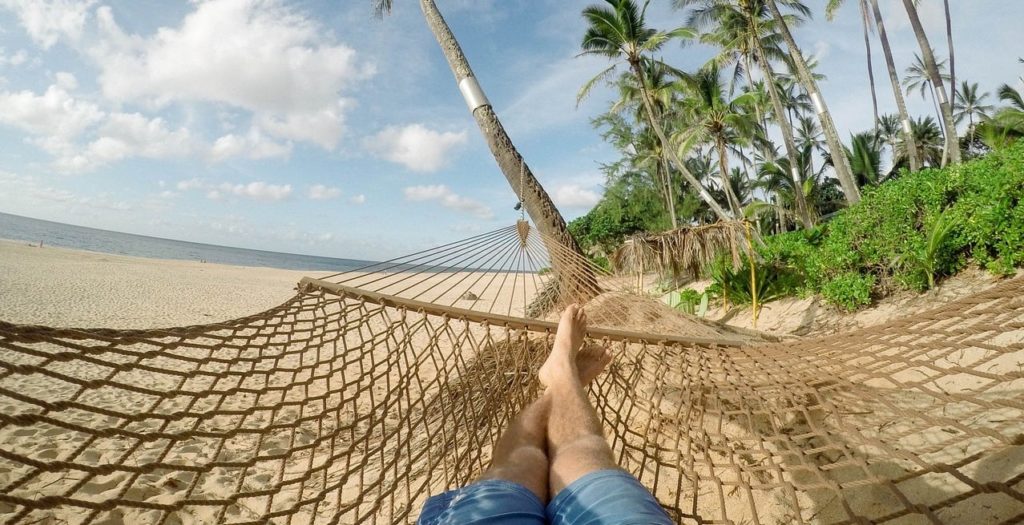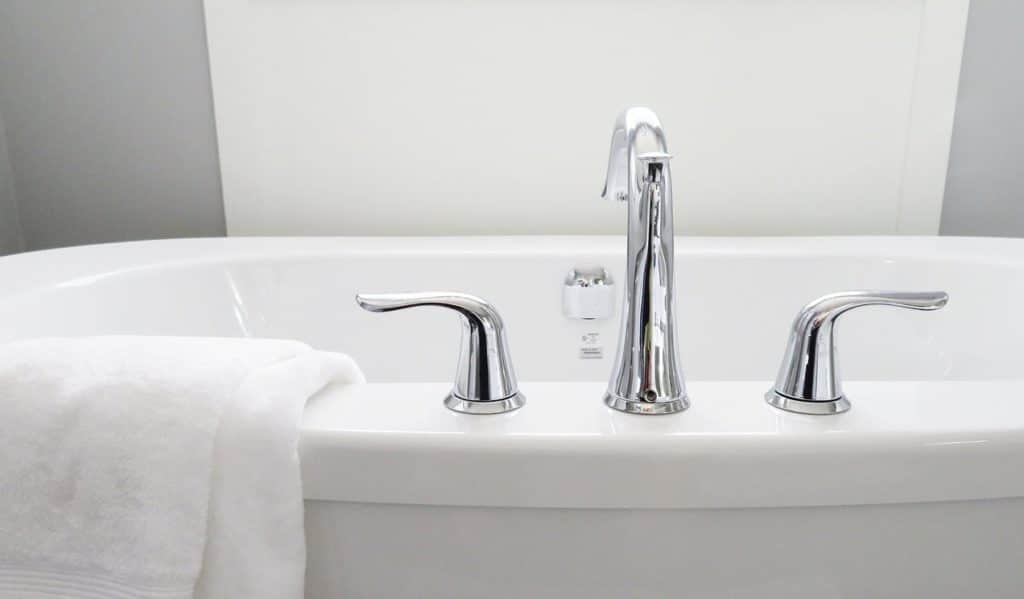According to neuroscientists from Western University’s Brain and Mind Institute, 7 to 8 hours of sleep per night is the optimal amount for cognitive performance. These are the findings of the world’s largest sleep study where over 40,000 participants from around the world were part of this online scientific investigation. So that’s great, right? We now have confirmation that you probably need to get more sleep than you are actually getting. And while I’m not a neuroscientist, nor do any of my recommendations in this article have any scientific backing, I’m pretty good at getting at least 7 hours of sleep a night. It’s not always deep, nor restful, but I definitely don’t feel sleep deprived (too much). I thought that I would offer some tips on ways to get a better sleep, one of them starting with getting some new bedsheets, like from California Design Den. (*Disclosure below.)
We spend much of our lives sleeping. If you take that 7-8 hour recommendation, that’s almost one-third of your life. That’s a lot of time just lying around…literally. So wouldn’t it make sense to devote some time to ensure that you are optimizing your sleep? For some people, this is easier said than done. I remember when I had young kids. Getting them to go to bed was always a chore. Getting them to stay in bed, sometimes even harder. And, as a young parent, your regular sleep patterns are often disrupted. Babies, toddlers, and little kids are often a huge disruptor to getting a better sleep. (But I’m NOT going to make a recommendation of NOT having kids…that’s just silly.)
But I will make some other recommendations on some ways that I have found to help achieve that nirvana of a good night’s rest. They really aren’t scientific, but they are time-tested, by me (and others). And while they do seem to work for me, I cannot guarantee they will work for you. The goal, however, is to keep trying different things until you are getting a good night’s sleep and then fine-tune those tactics to optimize your slumber.
Here are a few of my “getting a better sleep” tricks:
- Set regular bedtime schedule
- Figure out your sleep cycle
- Minimize or eliminate screens when going to bed
- Have a cool(er) environment
- Use a sound machine or earplugs
- Get a good bed
- Upgrade your sheets
- Minimize napping
- Try Melatonin
- Take a shower or bath prior
- Don’t think
Ready to sleep better (hopefully)? Read on!
1 – Set a Regular Bed Time Schedule
Just like your kids (if you have them), you need to be as regular as you can when it comes to going to bed. I truly understand that this is a difficult thing to do. Things pop up. But the important thing is to set your circadian rhythm to something as regular and normal as possible.
It’s important to go to bed and get up as close to the same time as possible. Yes, I know, in an ideal world, this would be easy. But your body likes consistency. For example, I try to be in bed by 10pm during the work week. My wife and kids know this, and, for the most part, respect it. I work really hard to get all of my “chores” completed before then. And then I go through the bedtime routine. While the lights might not be out at exactly 10pm, I try to hit it within 15-30 minutes. But figuring out this timing is also important, which leads to my next tip.
2 – Figure Out Your Sleep Cycle
For most of us, we sleep in 90-minute cycles, plus or minus a few minutes. These cycles include light (sometimes restless) sleep as well as deep (restful) sleep. You need to be sure you hit complete cycles, otherwise, depending on when you wake up, you may actually feel quite exhausted. Also, I believe that if you wake up during a dream cycle, that is when you actually remember your dreams.
There are apps and websites to help you figure out what time you should go to bed in order to wake up at a certain time. You can also do it manually. Start with when you want to wake up and then subtract 90 minutes until you find a go-to-bed time that works for you. That’s how I figured out my 10pm sleep time. I want to wake up around 6:00 am. And I figure I won’t fall asleep right at 10pm. So, I calculated with a padding of 30 minutes: 10pm (10:30pm) > 11:30pm (12am) > 1am (1:30am) > 2:30am (3am) > 4am (4:30am) > 5:30am (6am). So with that, I seem to wake up, almost naturally, between 5:30 and 6am. (When I wake up at 5am, I just get up and go work out.)
3 – Minimize or Eliminate Screens When Going to Bed
I have to say, this is a really hard one to do. But some studies have proven that the blue light coming from your smartphone, tablet, or TV actually mess up your circadian rhythms. The blue light stimulates your brain into thinking that it is daytime, and you tend to wake up a bit more. Using a screen is definitely counter-productive.
Many new smartphones have a way to turn down the blue coming from the screen. And, if you are planning on getting on your phone, I would highly recommend using that setting. However, it’s better just to plug in your phone and keep it away from you. (In fact, we have our kids charge their phones in our room).
4 – Have a Cool(er) Environment
This is much more of a personal preference, but I have read other studies that recommend that your sleeping environment be cool and not hot and stuffy. You can, if you want, pile a ton of blankets on you, but for the most part, having the surroundings a bit cooler, it better.
For me, there is nothing worse than trying to fall asleep when it is really hot in the room. I even have a fan pointed at me all of the time, mainly because I sleep “hot.” But this might not work for you. If you are unsure, test out different temperatures and see what works best for you.
5 – Use a Sound Machine or Earplugs
Again, this is another personal preference. I like having white noise (specifically a babbling book or stream) when I sleep. It helps to drown out other noises around the home that might jar you awake. In fact, because we used sound machines with our kids, they like using it still. So when we travel, we have an app that we use which they are used to (and it triggers something deep in the brain that says “it’s time to sleep now”).
My wife and oldest daughter seem to prefer earplugs to block out sound. I actually don’t like that, because I do still want to be able to hear things in my surroundings, just not everything. Again, personal preference.
6 – Get a Good Bed
Having a lousy bed can absolutely ruin your sleep experience. And that means your sleep won’t be restful. While I think the mattress industry is trying to push sales, I have heard that you should change your bed every ten years or so. And, if possible, you should flip and/or rotate your mattress fairly regularly. Why? Because over time, you start to create indentations in the mattress.
For us, we love our big bed, and we have had it for many, many years. But it definitely had indentations. So, instead of getting a whole new mattress, my wife and I got a memory foam topper. Suddenly, it felt like a new bed. (A quick word of warning on memory foam though, it tends to make you feel a bit hotter, so keep that in mind and see my previous tip #4.)
7 – Upgrade your Sheets
A thing that people often overlook is their sheets. Having a bad set of sheets can actually ruin the sleep experience. Things like thread count and materials used actually make a big difference, as does construction. I’ve had fitted sheets that have torn as I put my feet under the covers. Now THAT is not fun! I’ve also slept in beds that had sheets that did not breathe well and were rough to the touch. Again, not a pleasant experience.
Recently, my wife and I got some California Design Den, 600-Thread Count, 100% Cotton sheets, and I must say, the difference is totally noticeable. Using a sateen weave, the California Design Den sheets felt really great and were sturdy (no tearing), and with the higher thread count, they felt soft, even after the first wash. I’m sure that over time, they will become even softer. The sheets fit well, even over our memory foam topper and did not come off over the week of using them. They fit over up to an 18” mattress! And, at just $70 for the king-sized set, they won’t break your budget and are an excellent way to enhance your sleep environment. They have lots of colors to match your bedroom decor as well.
8 – Minimize Napping
This is a hard one. I personally love taking a nap on the weekends whenever I can squeeze in the time. And, yes, studies have shown that short “power naps” are actually quite good for both recharging your brain and your body. A power nap usually is around 15-20 minutes long, and that is sufficient to regenerate yourself. Remember though, the longer you take a nap, it might actually do more damage than good.
If your nap is longer than 30 minutes and less than the 90-minute cycle, you may actually wake up feeling more tired. And if you nap for many hours, this will definitely affect your nighttime sleep pattern. You may find that you cannot fall asleep if you have too long of a nap that day. But, a power nap of like 15-20 minutes is usually ok. Here’s another tip. If you drink some caffeine literally right before you take a power nap (and you are actually good at falling asleep quickly), you will wake up 15-20 minutes later with a TON of energy!
9 – Try Melatonin
Melatonin is actually the ONLY hormone you can buy over the counter without a prescription. It is produced naturally at nighttime to help your body know when it is time to sleep or wake up. It increases in levels in your body when you go to sleep and then drops lower when it is time to wake up.
If you have problems falling asleep, you can take melatonin before going to bed. (It’s also good to help combat jet lag.) You should take about 30 minutes or so prior to your bedtime so that your body can absorb it. And you probably shouldn’t take it each and every night, only when you really want to get your body back on a regular sleep cycle. I used it for both traveling as well as getting my sleep pattern back on track, and it worked well. But now I don’t use it as I’m sleeping ok.
10 – Take a Shower or Bath Prior
Another great trick to help you fall asleep a bit more easily is to take a warm or hot bath or shower before going to bed. This process relaxes the body and can actually aid you in having a more deep sleep.
And, if you don’t want to go through the whole process of bathing or showering, you can just dip your feet into warm water to just help you relax. There is nothing better than feeling clean and warm right before going to bed.
11 – Don’t Think
This is probably the hardest one for me actually to do. There is nothing worse than trying to go to sleep, only to have your mind racing about what happened in the day or what will be happening the next day. Luckily, I actually have very little problem falling asleep. What does happen to me, is waking up in the middle of the night and having my brain start churning through things. But I have a new trick that I use that seems to help.
The secret to falling back asleep is to essentially clear your mind and focus on just one simple thing. You think about counting sheep, for example. You can start at a really high number and start counting backward. Visualize the sheep and the number. It seems to work; otherwise, you wouldn’t hear about it all of the time. However, I do something a bit different. I focus on a single word. In my case, it’s “deeper” (e.g., for deeper sleep). I think about that word, I say it in my head, I visualize the word in 3D and rotate the word in my head. Recently, I have found that within a few minutes, I’m back asleep. Find your word and try that trick.
Getting Some Good Sleep
While initially, I was just going to write a quick review about the California Design Den sheets that we had received, I felt inspired and I thought it would be better to actually provide some tips and tricks on how to make your sleep experience even better. Yes, the sheets, in conjunction with my tips, are making my nighttime sleeping even more enjoyable.
What are your tricks to getting a better sleep? I would love to know (and maybe add to my own mix). Leave a comment and share your sleep wisdom!
Disclosure: I have a material connection because I received a sample of a product for consideration in preparing to review the product and write this content. I was/am not expected to return this item after my review period. All opinions within this article are my own and are typically not subject to editorial review from any 3rd party. Also, some of the links in the post above may be “affiliate” or “advertising” links. These may be automatically created or placed by me manually. This means if you click on the link and purchase the item (sometimes but not necessarily the product or service being reviewed), I will receive a small affiliate or advertising commission. More information can be found on my About page.
HTD says: Getting a good night’s sleep is critical to your mental and physical health. These sleeping tips can get you along the way to ensuring you have a masterful slumber, good dreams, and waking to feel relaxed and refreshed! Oh, and get some good sheets too!
